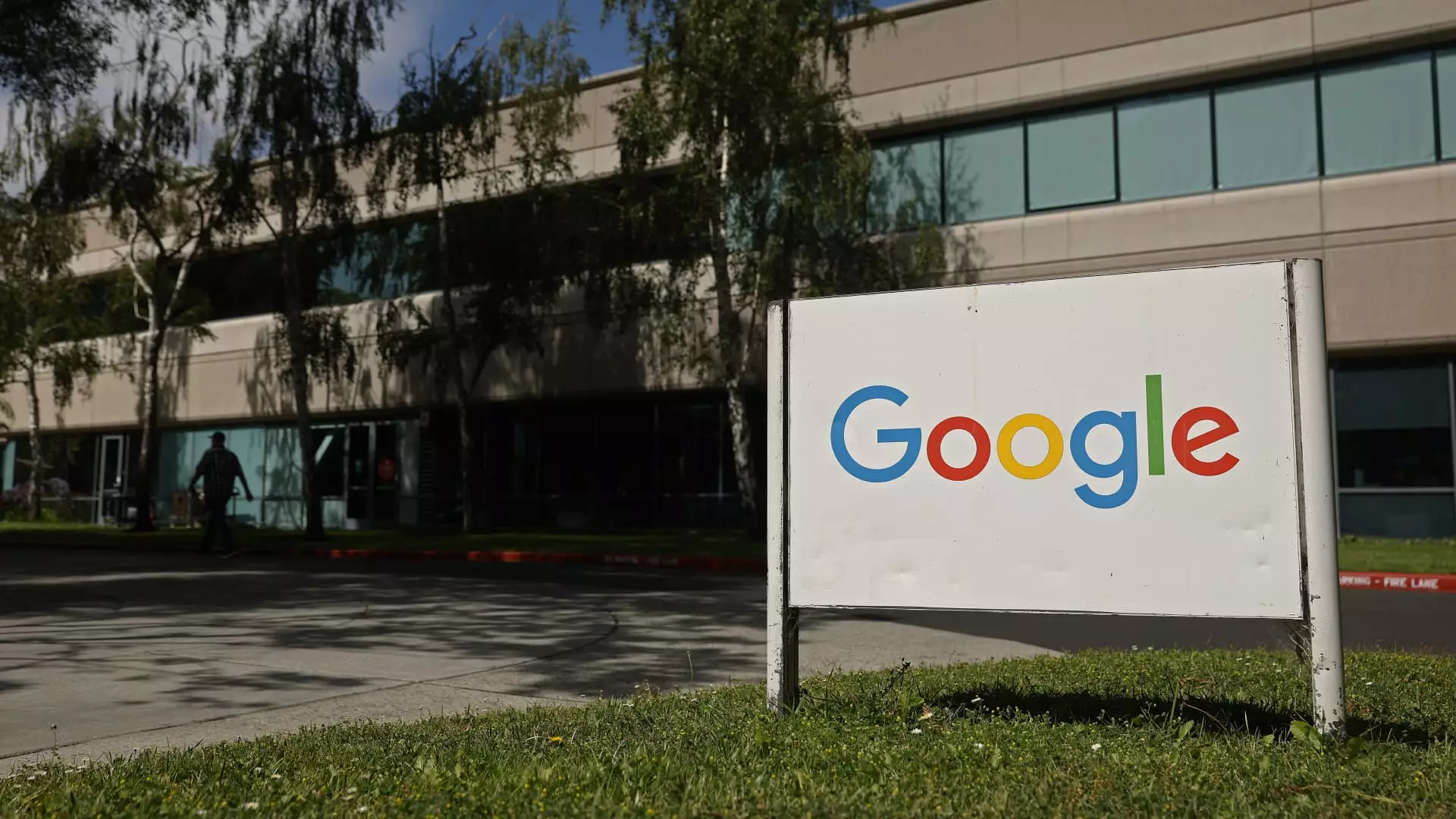In the rapidly evolving digital frontier, Alphabet’s recent financial disclosures reveal a company not just riding the wave of artificial intelligence but aggressively promising to commandeer it. The tech giant’s decision to escalate its capital expenditure from $75 billion to $85 billion underscores a strategic commitment that borders on obsession. While some may see this as prudent foresight, a more critical perspective suggests a risk of overreach, potentially fueling an unsustainable tech bubble built around AI hype. Alphabet’s relentless pursuit of AI dominance demonstrates an unwavering belief that data, infrastructure, and innovation can be limitless; yet, this may ignore the fundamental risks of overinvestment and impending market corrections.
The company’s emphasis on Cloud services and AI-enabled products reflects a calculated move to cement its place at the forefront of the next technological revolution. However, these ambitions raise questions about the long-term feasibility of maintaining such high levels of capital expenditure without clear, immediate returns. As the market witnesses the likes of Nvidia, Broadcom, and AMD following suit, it becomes evident that the current AI arms race is less about strategic innovation for societal benefit and more about competitive posturing—an investment frenzy that might inflate valuations beyond rational limits.
The Market’s Reaction: A Fuel for Speculation or Genuine Opportunity?
Wall Street’s response to Alphabet’s earnings indicates a mixture of optimism and peril. The rally across tech and chip stocks suggests that investors remain enamored with the narrative of AI-driven growth. Yet, this surge may be a double-edged sword, as it risks creating a speculative bubble. Analysts’ bullish comments—highlighting increased spending, accelerating revenues, and the potential of AI to reshape core products—sound convincing. Nonetheless, such enthusiasm could be clouding the reality: that much of this AI hype is predicated on uncertain breakthroughs, unproven business models, and exaggerated timelines.
Financial commentators like Bernstein and UBS analysts interpret Alphabet’s results as a catalyst for a broader wave of aggressive AI investments across the industry. They posit that Alphabet’s performance signals an industry-wide trend, further amplifying the narrative that AI is the key to future profits. But it’s crucial to scrutinize whether these expectations are grounded in sustainable technological progress or are simply a reflection of market momentum driven by hype and the fear of missing out. As supply chain updates and hardware ramp-ups feed into this narrative, it becomes increasingly difficult to distinguish between genuine innovation and speculative bubbles inflated by collective optimism.
Is the AI Arms Race a Strategic Mistake or a Necessary Evolution?
From a center-right liberal perspective, the vigorous push into AI by companies like Alphabet offers both opportunities and risks. On one hand, large investments can lead to technological breakthroughs that enhance productivity and global competitiveness. On the other, such an aggressive approach might lead to overinvestment, inflated valuations, and a misallocation of resources—a classic recipe for market instability. Balancing innovation with prudence is essential, yet there appears to be an overemphasis on “winning” the AI race at all costs.
This relentless pursuit of dominance can also skew the industry’s focus, diverting attention from broader societal benefits to narrow corporate interests. Moreover, a monopolistic approach to AI development—where a handful of big players like Alphabet, Google, and their peers control the ecosystem—raises concerns about stifling competition and curtailing consumer choice. The risk is that the current AI frenzy, fueled by intensive capital spending and optimistic projections, could lead to a technology landscape where market winners are less about technological merit and more about sheer financial muscle.
Furthermore, the narrative that AI will revolutionize industries may be overly optimistic. While early results look promising, the long-term impacts remain uncertain. A critical assessment should acknowledge the potential for technological stagnation, regulatory hurdles, or unintended consequences that could dampen the current euphoria. Investing heavily without a clear path to sustainable profitability might result in a hollow victory—where inflated assets burst and disillusionment sets in, leaving investors and consumers alike worse off.
The Danger of Hype Over Substance in the Tech Industry
Alphabet’s recent earnings report, characterized by soaring investments and optimistic forecasts, epitomizes the current craze for AI. However, history warns that technological bubbles often burst upon exaggerated expectations. While Alphabet’s strategic focus on AI is noteworthy, the obsession with outpacing competitors and capturing market share risks neglecting the importance of practical, consumer-driven innovation. Instead of fostering an environment where technology truly benefits society, the industry may be fostering an environment driven by greed and speculation.
This overheated climate can distort the market and distract from genuine technological progress. Smaller startups or lesser-known firms that might contribute meaningful innovations are overshadowed by corporate giants engaged in a bidding war for AI dominance. Moreover, the capital allocated toward these endeavors could be better directed to solving tangible societal problems—such as healthcare, infrastructure, or environmental sustainability—rather than fueling an unending chase for AI supremacy.
In what can only be described as a hazardous game of catch-up, companies are preemptively investing in AI infrastructure, often without clear milestones or realistic timelines. This approach risks creating a fragile ecosystem, vulnerable to sudden corrections once the market recognizes that much of the hype is disconnected from reality. Investors and industry leaders should exercise greater skepticism, insisting that bold innovation is accompanied by responsible investment that prioritizes long-term stability over short-term gains.
—
Note: This article critically examines Alphabet’s aggressive AI investments and the broader industry implications, incorporating a perspective that balances cautious skepticism with a recognition of the strategic importance of innovation, consistent with a center-right liberal stance.


Leave a Reply